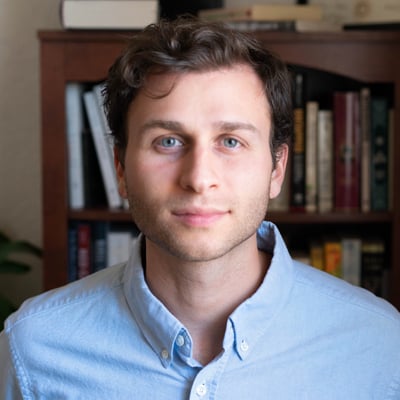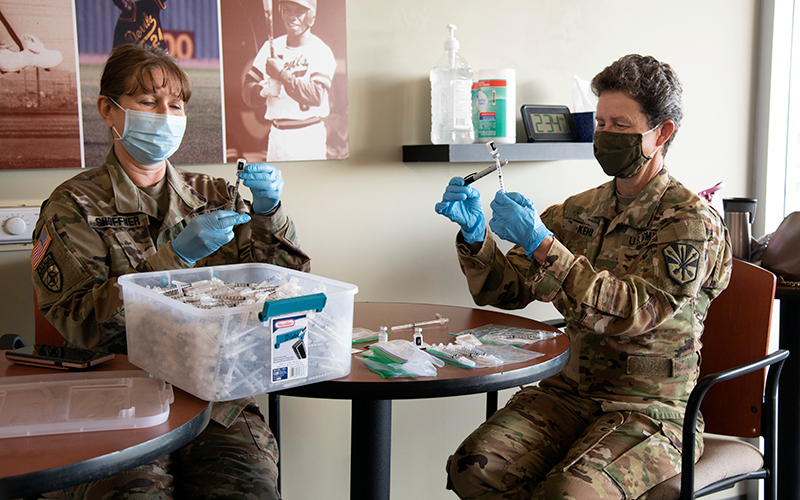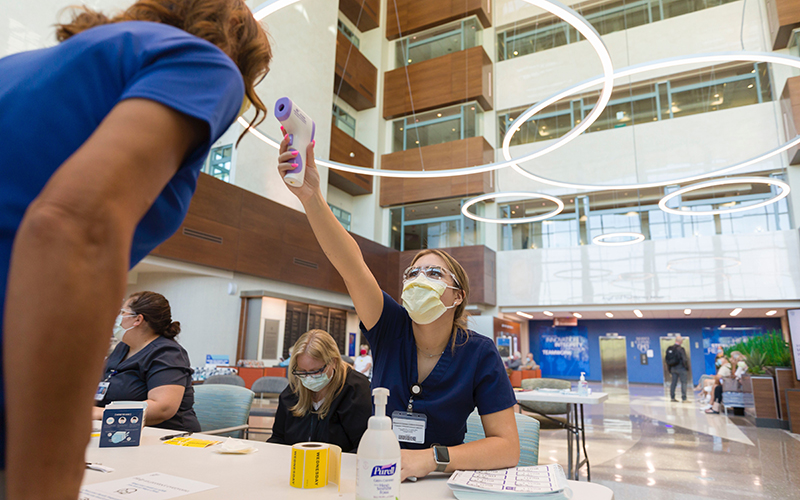PHOENIX – Appointments to get a COVID-19 vaccination at state-run sites were booked within minutes of opening Wednesday morning, according to the Arizona Department of Health Services.
About 25,500 appointments at three vaccination sites in Maricopa County and about 900 at the University of Arizona site in Pima County were snapped up within 20 minutes of registration opening at 8 a.m. Some Arizonans complained they couldn’t make an appointment because the health department’s website temporarily crashed.
About 80,000 appointments are expected to become available at 11 a.m. Friday.
The rush comes days after Gov. Doug Ducey announced that Arizonans 16 or older would be eligible to receive one of the three vaccines available.
In Tucson, the Department of Health Services online scheduling portal crashed. Caroline Recupero, 20, couldn’t secure her appointment – a process she compared to buying concert tickets online.
“It’s like everybody’s racing to try to get the vaccine,” said Recupero, a journalism major at UArizona. “So it’s hard to get an appointment.”
Recupero said she had registered her health insurance and personal information earlier in the week to speed up the process once appointments opened but still came up short Wednesday.
She logged onto her portal window at 8 a.m. and was greeted by an on-screen error message. Once the website was back up, all the appointments in Pima County had been booked. It was only 8:02 a.m.
For Recupero, the vaccine would give her the reassurance that the risk of infection would be limited around vulnerable family members in California, including her 2-year-old niece.
Since December, 26.2% of Arizonans have received at least one dose of vaccine. More than 900,000 doses have gone to Arizonans 65 or older, who make up the bulk of COVID-19 cases nationwide.
The number of new cases in Arizona is going down, and it’s not due to less testing, Dr. Joshua LaBaer, the executive director of ASU Biodesign Institute, said Wednesday.
“I actually think that it’s a real reflection of the decrease in case counts,” he told reporters at his weekly news conference. “The numbers in the hospitals, in general, appear to suggest that we do have a lower case burden right now.”
The Arizona Department of Health Services reported 605 new cases of COVID-19 and 44 deaths on Wednesday, bringing the totals to 837,849 and 16,842, respectively.
LaBaer said vaccination clinical trials have started with children 6 months to 11 years old, but the results aren’t available yet.
Meanwhile, the Navajo Nation has administered 187,096 doses of the vaccines and 74,188 Navajo have been fully vaccinated. About 298,000 Navajo live on the vast reservation, which lacks such basic infrastructure as running water.
Torey Dolan, a fellow with ASU’s Indian Legal Clinic Native Vote, called the vaccination effort unprecedented.
“This was something that I haven’t seen in modern history where the federal government just recognizes the governmental power of tribes, the infrastructure of tribes, and then gives them the opportunity to be a governmental actor and respond and allocate these resources,” Dolan said.
At several points during 2020, the Navajo Nation had the highest per capita COVID-19 rate of infection in the country. On Tuesday, the tribe reported three new cases and no new deaths, according to the Navajo Times. Tribal officials instituted strict curfews and lockdowns to keep the disease at bay.
“It’s been seen as a testament to the strength of tribal sovereignty when the state and the federal government recognize the power of tribal sovereignty,” Dolan said.



